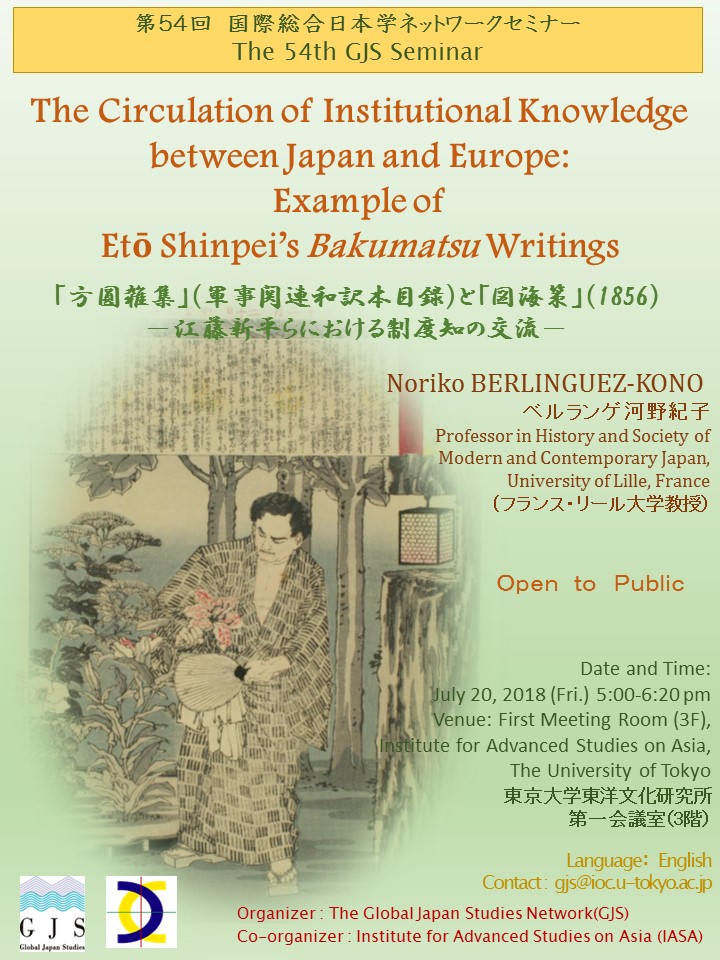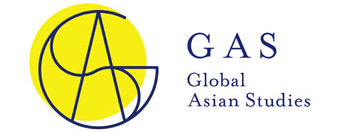第54回GJSセミナー 「方圓雑集」(軍事関連和訳本目録)と「図海策」(1856)――江藤新平らにおける制度知の交流
| 日時: | 2018年7月20日(金)17:00~18:20 |
|---|---|
| 会場: | 東京大学東洋文化研究所 第一会議室(3階) |
| 発表者: | ベルランゲ河野紀子(フランス・リール大学日本近現代史教授) |
| 使用言語: | 英語 |

発表概要: Etō Shinpei is best known as the first Minister of Justice of Meiji who endeavored to “modernize” legal systems, for example, by ordering the translation of French Napoleonic codes, by instituting a Law School attached to the Justice Ministry. With this aspect of enlightenment, Etō’s thought has often been mistaken for that of a fervent admirer of the West. In a sense, certain traditional values had clearly been embedded in his intellectual framework. In order to understand the meaning of his above-mentioned political acts at the very early stage of Meiji, we must explore his intellectual environment in the Bakumatsu period, prior to Meiji Restoration. As Etō neither kept a personal diary, nor left his written works, it would be almost impossible to analyze his own thought with accuracy. Instead, I shall examine the overall intellectual background of the period, which had formed and modeled Etō’s thought. This is to examine the books he might have read as well as the content of the diaries of his friends in Saga such as Ōki Takatō. The talk will be evolved around Etō’s handwritten list of books, mostly composed of Japanese translations of Dutch originals on military subjects, and his proposal on “Japan” ’s political choice titled "Tokaisaku". Etō wrote this proposal in 1856 at the age of 22, after, probably, having consulted the books on the lists. The proposal, which stressed the importance of opening Japan’s ports so as to commerce with foreign countries, was one of the first declarations in Japan, which supported the perspective of international commerce. I shall, therefore, explain the intellectual background and networks, which enabled him to gain insight, by insisting on the effects of the circulation of knowledge, of which the revolutionary bushi such as Etō could make an intelligent use. Thus, these bushi gained access to geopolitics and deepened their understanding of the institutions and systems they wished to construct in the near future.
主催:東京大学国際総合日本学ネットワーク(GJS)共催:東京大学東洋文化研究所(IASA)
問い合わせ:gjs[at]ioc.u-tokyo.ac.jp



